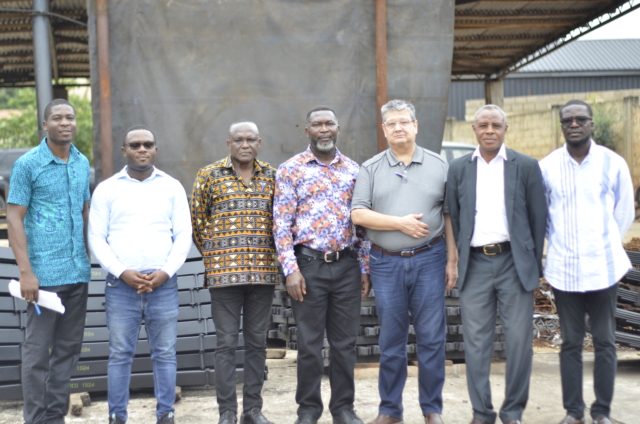
Audio By Carbonatix
A foreign consultant to Ghana's Ministry of Trade and Industry has lauded the country’s steps to maximize local capacity in the manufacture of car parts.
Although the country is still in the early stages of manufacturing, Oscar Albin of the National Industry of Automotive says it is vital that human resources and other facilities are well-resourced to enable the creation of world-class automobile parts.
“The ways are in ten steps to be top and be qualified as one of the ten best manufacturers of steer wheels or bolts. The country is not going to survive if it doesn’t pursue to be one of the top ten in the next 50 years.
“To be there, you have to make many things. In Ghana, we may be in the first step but at least we are on the land. The sector needs more trained human resource to be able to push this agenda,” he said.
Officials from the Ministry of Trade and Industry and the Technology Consultancy Centre of the KNUST have been visiting to assess some automotive component manufacturers in the Suame and Kaasi industrial enclaves.
The move is in a bid to attract foreign partnerships and investments to local machine spare parts producers.
Commissioned in 2018 under the government’s One-District-One-Factory policy, the Springs and Bolts Company Limited currently operates at a 8.5 thousand capacity of bolts and springs.
CEO of the company, Nana Kwame Asamoah says “producing locally is very expensive. Now, the government is supporting us. Notwithstanding, we need some more help to expand because there is a huge market in the West Africa sub-region. Currently, our state we want to increase our capacity of 8.5 tons to 25.4 tons in a weekly basis and employ more people and create close to 400 indirect and direct jobs”.
As part of the government’s transformational agenda, the company has been identified as a strategic partner in vehicle assembly and automotive components manufacturing.
Consequently, the Ministry of Trade and Industry is facilitating investment in vehicle assembly from leading original equipment manufacturers and investment partners with potential spill-overs into local manufacturing.
Professor Samuel Mensah Sackey of the Technology Consultancy Center of the KNUST suggested the establishment of standard quality control units in existing local automotive components manufacturing companies.
“We do not have enough quality control processes in the local manufacturing industries especially the informal sector. That’s the big challenge. We need world class function machine systems and spot welding system.
“We haven’t taken the necessary step to build this human capital. We need to build the human capital for all these areas,” he said.
Latest Stories
-
‘Don’t put the President on the spot’ – Fifi Kwetey rebukes Majority over OSP Bill
49 minutes -
‘There is no conspiracy by NDC’ – Fifi Kwetey explains OSP Bill fallout after presidential intervention
1 hour -
Nigeria allege DR Congo ‘fraud’ as they hunt World Cup reprieve
2 hours -
Alcaraz announces shock split with coach Ferrero
2 hours -
Two held over viral assault on minor
2 hours -
The Oscars to leave ABC and stream on YouTube starting in 2029
2 hours -
Starmer tells Abramovich to ‘pay up now’ or face court
2 hours -
FIFA video game to return after four years in Netflix exclusive
3 hours -
Ghana’s programme performance has been broadly satisfactory – IMF Board
3 hours -
Former chancellor George Osborne joins OpenAI
3 hours -
No bank has been cited, sanctioned by any regulatory or law enforcement agencies – Association of Banks
3 hours -
Ghana’s GH₵10m relief support to Jamaica grounded in compassion and solidarity – Ablakwa
3 hours -
Speaker, Ga Mantse to headline GJA Dinner Night
3 hours -
JoyNews to host National Dialogue on declining adherence to standards on Thursday
3 hours -
Newmont to fully fund 13 kilometers Ntotroso–Kenyasi road in 2026
3 hours

